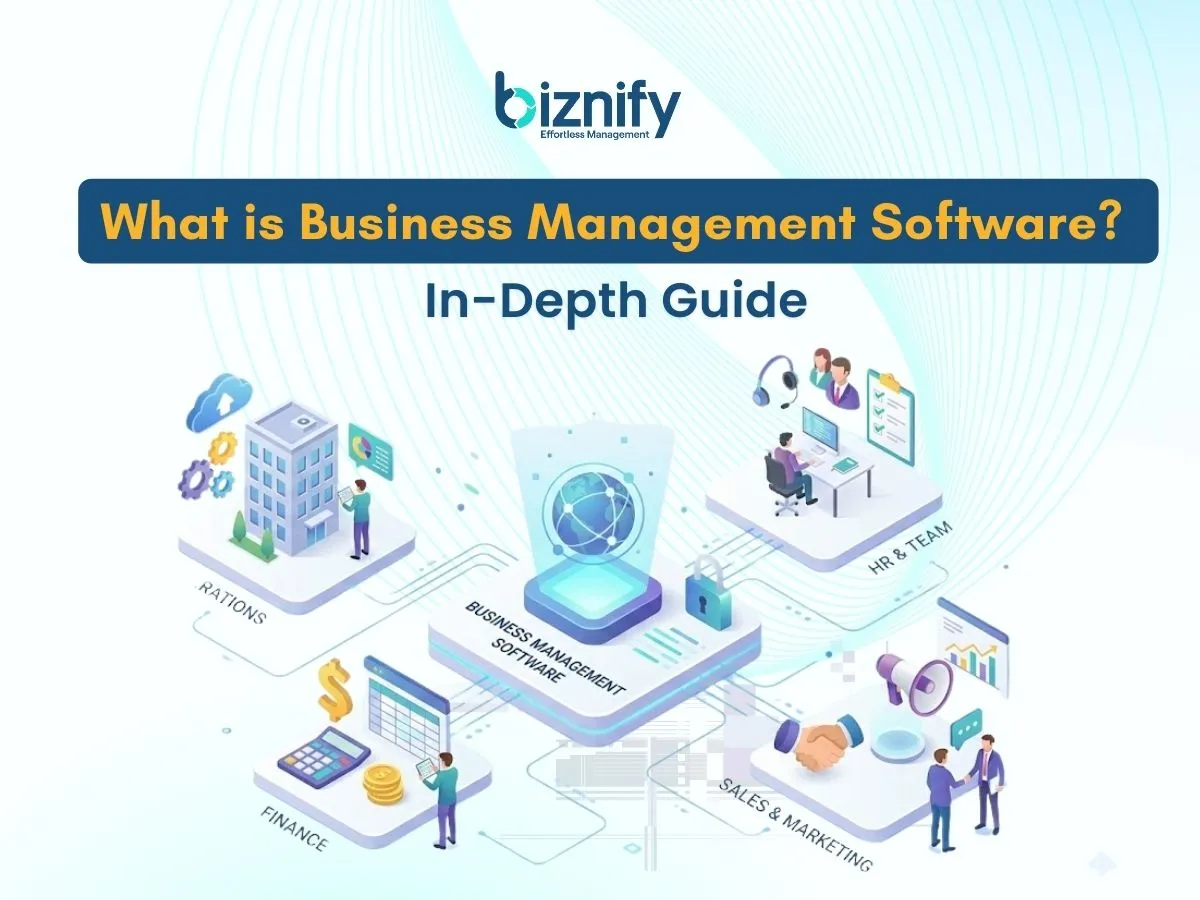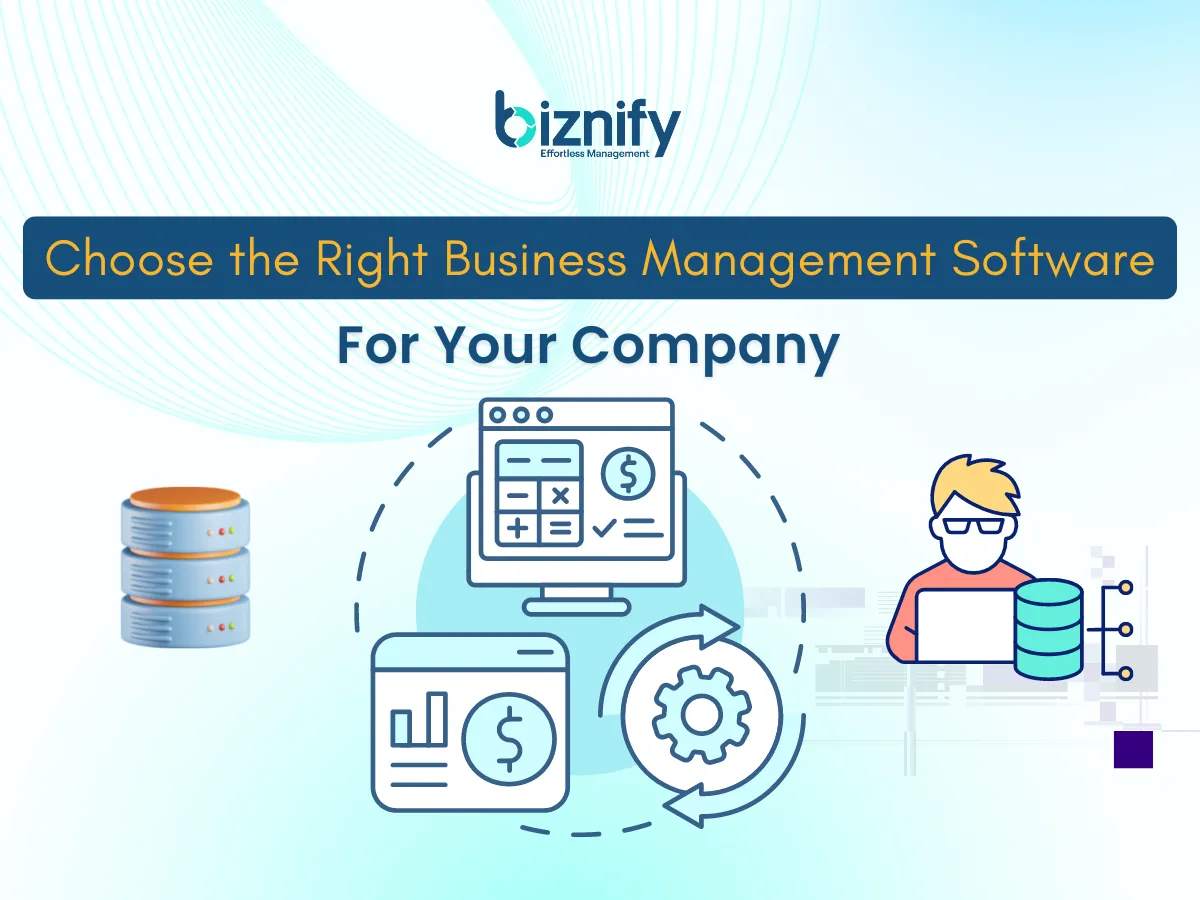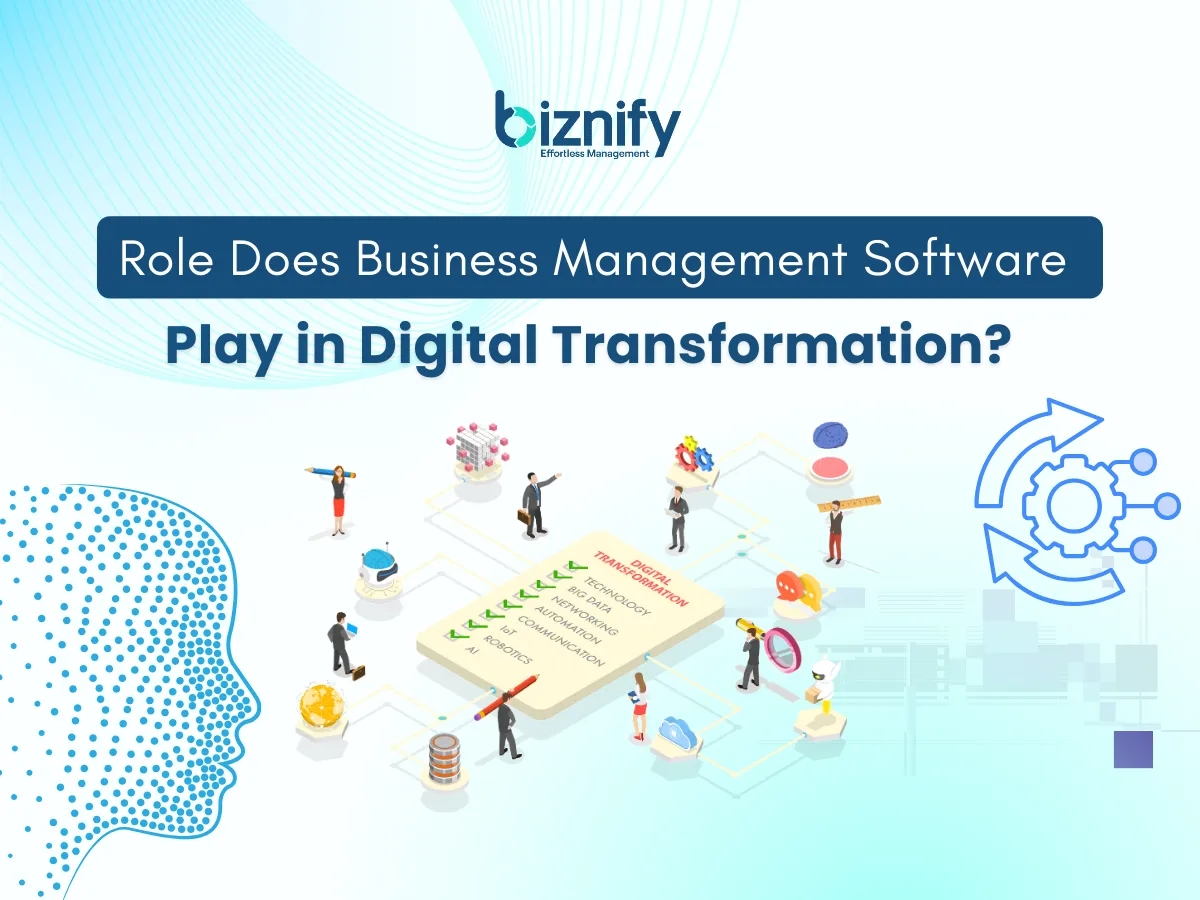
Business management software is a comprehensive tool that helps organizations streamline and automate various business processes. It includes features like project management, CRM, HR, accounting, and inventory management, among others.
This software allows businesses to centralize their operations, improve efficiency, and make data-driven decisions for better growth and profitability. From managing customer relationships to tracking inventory and monitoring financials, business management software offers a unified platform for businesses to effectively manage their operations.
With its user-friendly interface and customizable features, it provides a seamless experience for organizations of all sizes and industries. Whether it's a small startup or a large enterprise, investing in business management software can greatly enhance productivity and overall business performance.
Business management software is a crucial tool for organizations to streamline their operations efficiently. It plays a pivotal role in enhancing productivity and ensuring smooth business processes.
Business management software is essential for businesses in today's fast-paced environment to keep track of their operations and make informed decisions.
User-friendly interface
Integration capabilities
Customization options
Reporting and analytics tools
Scalability for business growth
Business Management Software encompasses a variety of tools designed to improve operations, such as inventory management, CRM, and accounting software. These solutions enhance efficiency, productivity, and decision-making processes.
From tracking tasks to analyzing data, Business Management Software offers comprehensive solutions for businesses of all sizes. Here are the main types of business management software:
Operations management software helps businesses manage their day-to-day operations by automating and streamlining processes such as inventory management, order processing, and supply chain management. Key features include:
Inventory Management: Track inventory levels in real-time.
Order Processing: Streamline order fulfillment and reduce errors.
Supply Chain Management: Optimize the supply chain for efficiency and cost savings.
This type of software is essential for businesses dealing with large volumes of products or complex supply chains, improving overall operational efficiency.
Customer Relationship Management (CRM) software aids businesses in managing customer interactions and data. Key features include:
Customer Data Management: Centralize customer information for easy access.
Interaction Tracking: Monitor all customer interactions and communications.
Automated Marketing: Run targeted marketing campaigns to enhance customer engagement.
CRM software is particularly beneficial for businesses that rely on repeat customers and loyalty, helping to boost sales and improve customer satisfaction.
Human Resources Management (HRM) software assists businesses in managing their human resources efficiently. Key features include:
Employee Data Management: Maintain detailed records of employee information.
Performance Tracking: Monitor and evaluate employee performance.
Automated HR Processes: Streamline recruitment, benefits management, and attendance tracking.
HRM software is crucial for businesses with large workforces or complex HR processes, helping to enhance productivity and streamline HR tasks.
Project management software enables businesses to plan, execute, and monitor projects effectively. Key features include:
Task Management: Assign and track tasks across teams.
Time Tracking: Monitor the time spent on various project activities.
Collaboration Tools: Facilitate communication and collaboration among team members.
This software is ideal for businesses that manage multiple projects simultaneously, ensuring projects are completed on time and within budget.
Accounting software helps businesses manage their financial transactions and reporting. Key features include:
Invoicing: Create and send invoices to clients.
Expense Tracking: Monitor business expenses and manage budgets.
Financial Reporting: Generate detailed financial reports for analysis.
Accounting software is essential for businesses of all sizes, providing accurate financial data to support decision-making.
Incorporating these various types of business management software can significantly enhance the efficiency and productivity of any organization, helping to streamline operations and improve overall business performance.
For instance, platforms like Biznify business management software provide comprehensive solutions that integrate essential functions such as accounting, inventory management, sales optimization, HR and payroll, e-commerce management, and more.
With Biznify, businesses can consolidate their operations under one user-friendly interface, ensuring seamless coordination and informed decision-making across all departments.
Implementing management software significantly improves business efficiency and productivity. Here are the main benefits:
Management software automates manual tasks, reducing errors and saving time. Centralized data and processes enhance team collaboration and communication, leading to smoother operations.
Automation of repetitive tasks and real-time insights boost productivity. Employees can stay organized with automated reminders and scheduling features, leading to faster project completion and improved customer service.
Real-time data and analytics enable informed decision-making. Customizable dashboards and reports provide valuable insights into sales, inventory, and customer behavior, helping you optimize processes and stay ahead of the competition.
Implementing management software streamlines operations boosts productivity, and supports data-driven decisions, driving business growth and success.
Choosing the right business management software for your business is crucial to streamline operations, improve productivity, and enhance overall efficiency.
With a myriad of options available in the market, it's essential to assess your business needs, compare market options, and consider scalability and integration to ensure you make the best choice.
Before diving into the selection process, it's imperative to assess your business needs. Identify the specific areas of your operations that require improvement, whether it's inventory management, customer relationship management, accounting, or project management. Understand the pain points and challenges your business is facing to determine the functionalities you need in business management software.
Once you have a clear understanding of your business needs, it's time to compare the available market options. Research different software solutions, considering factors such as features, pricing, user interface, customer support, and reviews. Create a list of potential software that aligns with your business requirements to facilitate a comprehensive comparison.
Scalability and integration are critical factors to consider when choosing business management software. Ensure that the software can accommodate the growth of your business and adapt to increasing demands. Additionally, assess the compatibility of the software with your existing systems and the ability to integrate with other essential tools to avoid disruptions in your business processes.
Biznify Business Management Software stands out by offering a comprehensive suite of features including robust accounting, real-time inventory management, streamlined sales processes, efficient HR and payroll management, powerful e-commerce tools, and intuitive reporting capabilities. Its all-in-one platform simplifies business operations, making it an ideal choice for organizations seeking cohesive management solutions.
Implementing business management software requires careful planning and execution to ensure a smooth transition and optimal utilization of the system's capabilities. The following implementation strategies are essential for successful integration and adoption of business management software.
Effective planning is crucial for the successful implementation of business management software. This involves identifying the specific needs of the organization, setting clear goals, and allocating resources accordingly.
Budget allocation and timeline establishment are key components of this stage. It is important to involve all relevant stakeholders in the planning process to ensure alignment with the organization's objectives and requirements.
Comprehensive training programs are essential to equip employees with the necessary skills to effectively utilize the business management software. Training sessions should be tailored to different user roles and levels of proficiency.
Additionally, providing ongoing support and access to technical assistance is crucial for addressing any challenges that may arise during the implementation phase.
Continuous monitoring of the software's performance and gathering feedback from users is essential for identifying areas that require improvement.
Regular assessments and feedback mechanisms enable the organization to address any issues and make necessary adjustments to maximize the benefits of the business management software.
There are lots of myths and misconceptions about implementing business management software, but implementing business management software can bring numerous benefits to an organization. But you must aware about the challenges as well, lets discuss:
User Resistance
When introducing new business management software, one common challenge is user resistance. Some employees may be hesitant to embrace change or may find it difficult to adapt to the new system. This resistance can hinder the successful implementation and utilization of the software.
To overcome user resistance, it is crucial to emphasize the benefits of the software and how it can streamline workflows and improve productivity.
Providing comprehensive training sessions and ongoing support can help employees become more comfortable and confident with the software.
Engaging employees in the decision-making process and addressing their concerns can also help alleviate resistance and foster a positive attitude towards the new system.
Data security and privacy are significant concerns for businesses when implementing business management software. With the increasing frequency of cyber threats and data breaches, organizations must ensure that their sensitive information is protected.
To address these concerns, businesses should choose business management software that offers robust security measures, such as encryption and access controls.
Regular software updates and patches should be implemented to address any vulnerabilities. Conducting regular audits and risk assessments can help identify potential security gaps and address them proactively.
Additionally, educating employees about best practices for data security and privacy can further strengthen the overall security framework.
Cost management is another challenge that businesses may face when implementing business management software. The initial investment, ongoing maintenance, and licensing fees can add up, impacting the overall budget.
To manage costs effectively, businesses should conduct a thorough cost-benefit analysis before selecting a software solution. This analysis should consider the long-term benefits and potential return on investment that the software can provide.
Negotiating pricing and licensing terms with vendors can also help reduce costs. Regularly reviewing and optimizing software usage can ensure that businesses are only paying for the features and modules they truly need.
As technology continues to advance rapidly, the future of business management software is poised for exciting developments. Here are some key trends to watch out for:
Business management software is increasingly leveraging AI for enhanced decision-making and automation.
Cloud-based business management software offers flexibility and scalability for businesses of all sizes.
Mobile access to management software enables seamless operations from anywhere, at any time.
Business management software is a type of software designed to help businesses manage and automate their operations. It can include tools for accounting, inventory management, customer relationship management, and more.
Business management software works by integrating with your existing systems to automate and streamline tasks. It can provide real-time data and analytics to help you make informed decisions and improve efficiency.
Using business management software can help you save time, reduce errors, increase productivity, and improve customer satisfaction. It can also provide valuable insights into your business operations and help you make informed decisions.
To choose the right business management software for your business, you should consider your specific needs, budget, and the features and integrations offered by the software. It's also important to read reviews and compare different options before making a decision.
Business management software is a valuable tool for streamlining operations and improving efficiency. By automating processes and providing real-time data insights, it empowers businesses to make informed decisions and stay competitive in today's dynamic market.
Among the myriad options available, Biznify stands out as a comprehensive solution tailored to meet the diverse needs of businesses.
From simplifying accounting processes and optimizing inventory management to eefficient sales operations and managing HR tasks seamlessly, Biznify offers an integrated platform that supports organizational growth and efficiency. Its intuitive design and robust feature set make it an invaluable asset for businesses aiming to streamline operations and achieve sustainable success.
Get a guided product demo tailored to your business needs. No assumptions. No generic walkthroughs. Just real use cases.


Just exploring ERP or unsure which modules you need? The Biznify team’s here with straight answers.